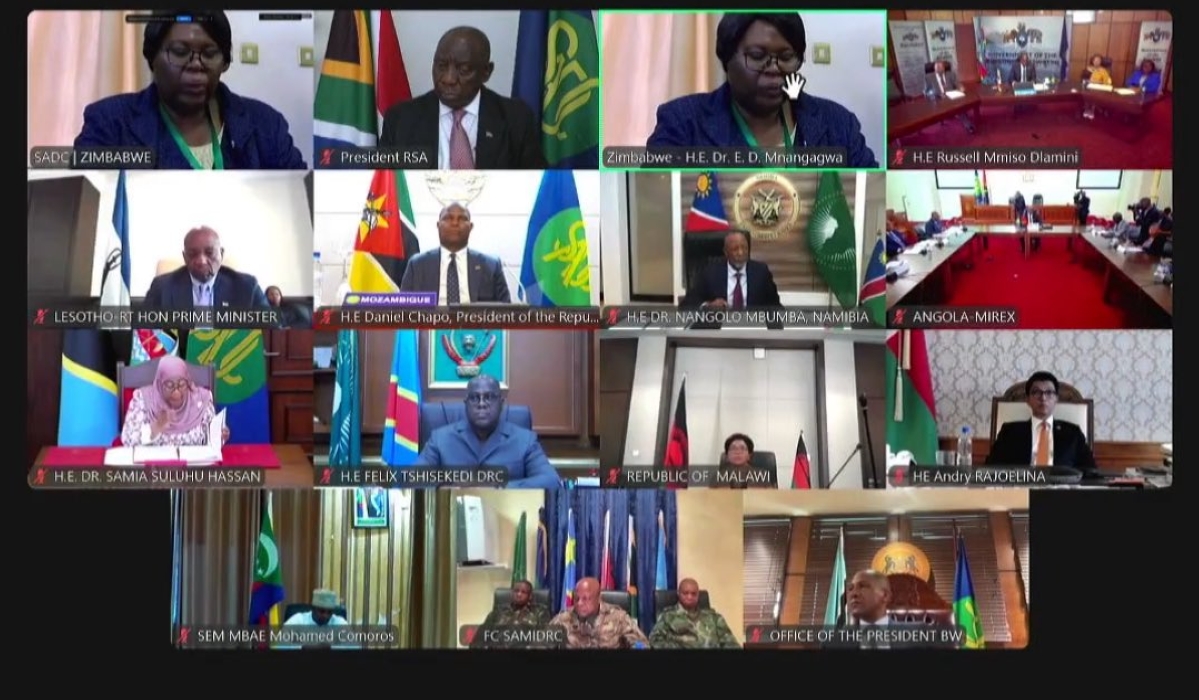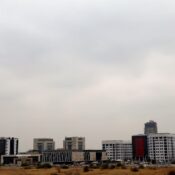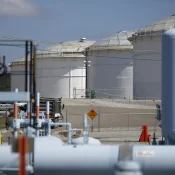
The SADC meeting ends the military mission’s mandate in DR Congo
On Thursday, March 13, the Southern African Development Community (SADC) held a meeting that ended the region’s military mission in eastern Democratic Republic of the Congo (DRC) and “directed the commencement of a phased withdrawal” of its forces from the country, according to a communique.
The announcement that direct peace negotiations between the Congolese government and AFC/M23 insurgents will begin on March 18 in Luanda, Angola, was made the day before.
Chairing the Southern African Development Community’s (SADC) special conference on the DR Congo situation on Thursday, Zimbabwean President Emmerson Mnangagwa emphasized that “urgent action is needed to implement solutions.”
With the bloc’s deployment of forces under scrutiny for aiding the Congolese government in fighting its own people and collaborating with genocidal armed organizations like the FDLR that attack Rwanda, the summit sought to determine the best course of action for resolving the issue in eastern DR Congo.
Implementing solutions, bolstering security, and safeguarding communities all require immediate action. We will secure our region together,” Mnangagwa wrote in a message on X.
According to SADC Executive Secretary Elias Magosi, inclusive diplomatic efforts and communication between all state and non-state parties to the conflict—military and non-military—are necessary to bring about a sustainable peace in eastern DR Congo.
Accordingly, he stated, “the region fully supports the call for the reopening of diplomatic channels through existing frameworks of the Nairobi and Luanda Peace Processes.”
On March 6, the SADC bloc called a virtual emergency summit of the Organ Troika’s heads of state and government, and it was reported that they decided to abandon the regional bloc’s military deployment in eastern Democratic Republic of the Congo, stating that it was no longer feasible. After being granted passage through Rwanda, up to 200 SADC soldiers who had been engaged in combat in the eastern Democratic Republic of the Congo were sent home on February 24.
Malawi declared it was pulling out of the eastern Democratic Republic of the Congo last month.
The South African, Malawian, and Tanzanian troops that make up the SAMIDRC forces are constrained to their bases in areas controlled by the AFC and M23 rebels. The rebels are regulating their own movements.
Around 10,000 Burundian troops, 1,600 European mercenaries, South Africa-led SADC forces, UN peacekeepers, and the Congolese government army coalition, which includes the FDLR, a terrorist militia based in the Democratic Republic of the Congo and founded by the masterminds of the 1994 Genocide against the Tutsi, began fighting the M23 rebels in 2021.
As of December 2023, M23 is a member of the Alliance Fleuve Congo (AFC), a larger and rapidly growing rebel group.
In Bukavu, the capital of the South Kivu Province of the Democratic Republic of Congo, 890 soldiers and more than 2,100 Congolese police officers joined the AFC/M23 uprising on February 22.
The rebels have been conquering large areas of North and South Kivu provinces since January after driving out the large Congolese army coalition. The Congolese army coalition’s persistent violations of an earlier truce led to intense combat, and on January 27, the rebels took control of Goma, the provincial capital of North Kivu, and restored order.
The rebels reacted as the security situation in South Kivu worsened due to bloodshed, looting, and abuses reported by the Congolese army coalition. Prior to advancing south to seize the provincial capital, Bukavu, on February 15, they first took control of the vital Kavumu airport.
Fighting for governance that upholds fundamental human rights, protects all Congolese citizens, and tackles the underlying causes of conflict is the goal of the rebel movement. It has pledged to eradicate the pervasive vices of DR Congo, including nepotism, corruption, tribalism, and genocidal ideology.
All Categories
Recent Posts
Tags
+13162306000
zoneyetu@yahoo.com



